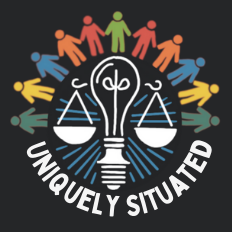The Importance of Civic Engagement in the Community
Civic engagement plays a crucial role in maintaining a healthy democracy and fostering community wellbeing. It encompasses a wide array of activities through which individuals participate in the decision-making processes that affect their lives and their environment. Engaging in civic activities empowers citizens, allowing them to voice their opinions, advocate for change, and influence their local and national governance structures. This participatory approach is especially vital in areas like criminal justice reform, where informed citizens can drive impactful transformations.
Key components of civic engagement include voting, attending town hall meetings, and grassroots organizing. Voting serves as the foundation of civic participation, giving individuals the opportunity to select representatives who align with their values and vision for justice. Town hall meetings further enhance this engagement by creating a forum for dialogue between citizens and elected officials, thereby fostering transparency and accountability. Grassroots organizing brings communities together to mobilize for specific issues or policies, ensuring that underrepresented voices are heard and considered.
A well-informed community can profoundly impact local and national issues. For instance, initiatives like campaigns for police accountability and community-led restoration efforts demonstrate how civic participation can lead to substantial changes in laws and policies. One illustrative case is that of the Black Lives Matter movement, which gained national attention due to its grassroots organizing and civic engagement efforts. This movement compelled policymakers to address systemic racism and reevaluate policing practices, showcasing the power of collective action rooted in civic principles.
Moreover, civic engagement can strengthen social justice by creating coalitions among different demographics, advocating for equitable policies that serve marginalized populations. By promoting inclusivity and collaboration, communities can ensure that their voices resonate in the political landscape, ultimately leading to transformative justice reforms. Engaging in civic life not only benefits the individual but also fortifies the collective voice of the community, driving meaningful change and fostering a society rooted in justice and equality.
Fighting for Criminal Justice Reform: Education as a Tool for Change
Education plays a vital role in the movement toward criminal justice reform, serving as a powerful tool that empowers individuals and communities. Nonprofit organizations have emerged as pivotal agents in this context, facilitating educational initiatives that illuminate systemic issues within the criminal justice system. By fostering awareness and understanding of these issues, education enables individuals to recognize their rights and advocate for change effectively.
Workshops and programs specifically designed to inform communities about the complexities of the criminal justice system are crucial. These initiatives often cover a range of topics, including an overview of legal rights, the implications of incarceration, and the impact of systemic discrimination. Through these educational efforts, community members are not only informed but also trained to speak out against injustices they may encounter in their interactions with law enforcement and the judicial system.
Success stories from various communities illustrate the power of education in driving criminal justice reform. In several instances, organized educational initiatives have catalyzed legislative changes, as participants mobilized to advocate for policies that address inequities. For example, community-led programs that focus on educating young people about their rights have contributed to increased awareness and ultimately more robust advocacy efforts aimed at reforming local laws.
Collaboration is essential in these efforts. Nonprofit organizations often work hand-in-hand with local leaders, policymakers, and other community organizations to create a comprehensive approach toward addressing the intricate dynamics of the criminal justice system. By uniting efforts, these stakeholders can amplify their voices and create a stronger, more inclusive platform for advocating lasting change. Through education, communities can cultivate informed and empowered advocates who are prepared to address injustices and push for meaningful reform.
